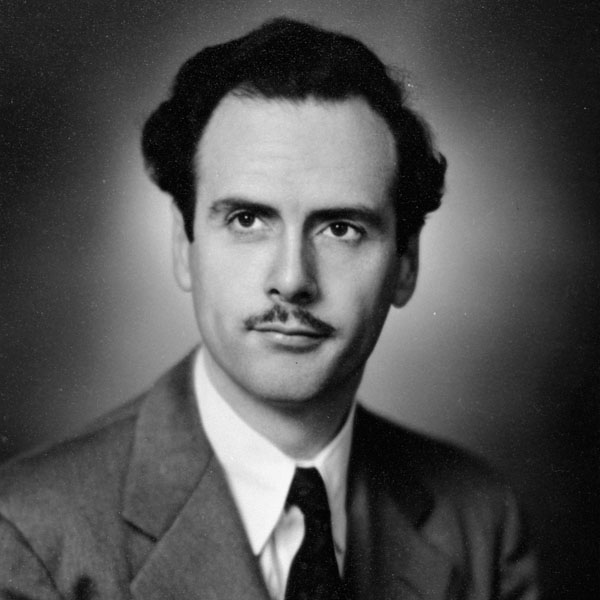What’s the significance of Marshall McLuhan’s phrase “the medium is the message”? It’s one of the most quoted maxims of the marketing world, for one. And rightfully so since it’s one of the most important concepts in marketing and communications. But I can’t help but feel that it’s often quoted because it has a rather pleasing and succinct alliteration, rather than to communicate its true meaning.
It’s easy to get tangled up by the concept of medium by thinking it’s got something to do with media, i.e. somehow relevant to Facebook, email or telephone. But that’s not it – at least not really. Instead, McLuhan’s idea of medium is somewhat analogous to context.
McLuhan distinguishes content from medium. To McLuhan, content is the obvious statement, e.g. the words in a tweet. The medium, on the other hand, is what the words really mean. That’s not to say they’re double entendres. The words themselves may be very clear. However, it means that behind the words is a context, a hidden reality that created the words, and also continues to influence their meaning. Furthermore, the medium not only involves the person producing the message, but also the person perceiving it. So for instance, there’s a context whereby in order to read a tweet that person would need to have a computer, laptop, tablet or phone. They might be in the office, or at home, or on their daily commute etc.
McLuhan uses the example of a lightbulb, it has no content other than it simply is a lightbulb. In this sense you might say that a lightbulb is fairly boring. On the other hand, the medium of the lightbulb is rich and vast. It encompasses the whole social global impact of the lightbulb. What would the world be like without lightbulbs? What would your life be like without lightbulbs? What would a room be like without lightbulbs?
There’s a brilliant scene near the end of the film Cast Away where Tom Hanks’ character has just returned to civilisation having being shipwrecked for several years. He gets changed in his hotel room and marvels in the overwhelming simplicity of being able to flick a lighter on and off with a click, when he had to struggle to make his own fire for so long.
What is Tom Hanks trying to tell us about the medium?
- Context is subjective
- The medium is emotional as well as semantic
- You can’t rely on face-value judgements as they only tell a tiny fragment of the whole story – the tip of the iceberg. Consider if someone just started watching Cast Away at the scene with Tom Hanks switching the light on and off without knowing the context of why it’s so significant. What meaning would they take from that scene? – No doubt something different than someone who had watched the whole film.
- Content is static, but the medium is constantly shifting and evolving.
What does this mean for marketers? Well I think it means something extremely important… What you say doesn’t matter half as much as you think it does. Instead, the important thing to consider is: what people will think when they read what you’ve said.
Let me give you a completely ridiculous made-up example to illustrate my point. You’re off sick and you’re on the sofa watching day-time reality television, when in the advertisement break sandwiched in between an ad for Foxy Bingo and Wonga dot com payday loans, there’s an advert from University of Cambridge encouraging you to apply to their University.
What do the words say?
“Apply to the University of Cambridge, the best university in the world.”
What do the words mean?
- We’re struggling to recruit students this year, so we’re having to advertise when we usually don’t have to.
- We think our target audience is likely to be watching day time TV…
…and apparently even smart posh kids love a bit of Jezza. - We might be in financial trouble.
- We have an incompetent marketing team.
- Cambridge has really gone down hill.
- TV advertising must be really effective.
- And so on…
Quite a bit of a difference. When the medium and the content contradict each other, the medium wins. Furthermore, the content of the message is then perceived to be false, which adds even more prominence to the medium. In the made-up scenario above: If Cambridge were to say that they are the best university in the world, at the same time as acting in a way that contextually didn’t seem like something the best university in the world would do – it would not only be self-defeating but it would actively damage their reputation and give the audience a sense of mistrust.
Let’s go back to my original question: what’s the significance of Marshall McLuhan’s phrase “the medium is the message”?
It’s this: marketers need to have high-levels of social intelligence in order to properly understand the medium before they create content. If you don’t, you run the risk of letting loose some truly colossal clangers on the world that may end up causing serious damage to your brand. Like when Adidas tweeted someone “Congrats, you survived the Boston Marathon” 4 years after the Boston Marathon bombing. Or when American Apparel posted a photo of an unusual shaped cloud, which was actually the explosion of the Challenger spacecraft. Or when Lockheed Martin (the world’s largest arms manufacturer) asked people to share pictures of its products and tag themselves in. Which naturally led people to post pictures of schools that had been bombed to bits in the Middle East and other similar awful scenes of death and destruction.
A good marketer needs to have a sympathetic understanding of how people think. A socially intelligent marketer will be able to align the medium and the content, so they reinforce each other, rather than conflict. Better still, going a step beyond McLuhan’s ideas, I believe a truly world-class marketer will have both the social intelligence and the inner creativity to able to skillfully play the medium and the content of the message off each other in witty juxtapositions and charming prose. I believe that this is the holy grail of marketing communications.
That is why the best and most viral content echoes feelings of ‘relatability’. You become aware that you and the content producer (along with everyone else sharing the content) are all part of the same medium. You feel a sudden sense of connection. It makes you think of friends and family members you share the medium with, and it inspires you to share it with them. “This was us last year, lol!”
The medium is the message.

